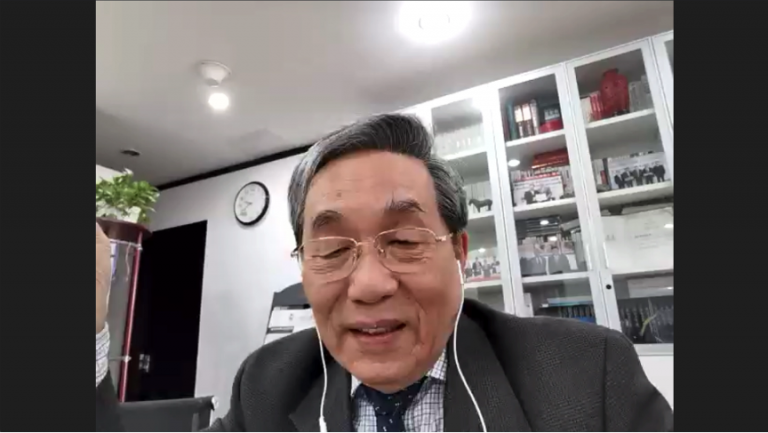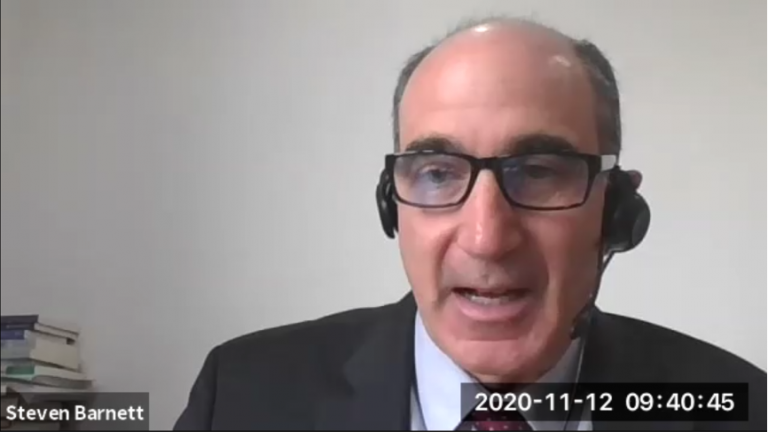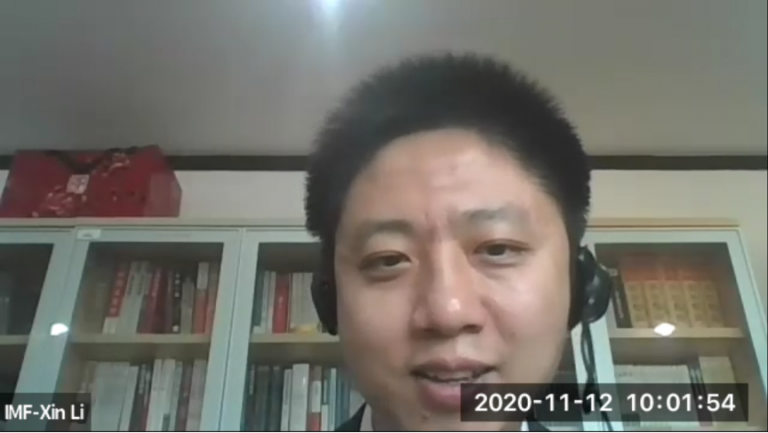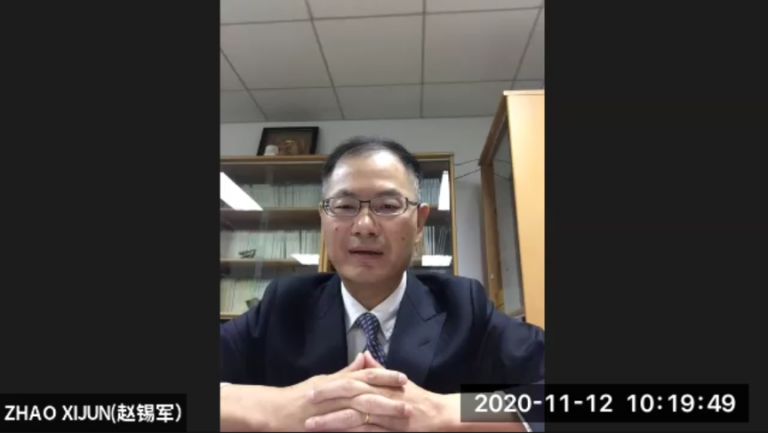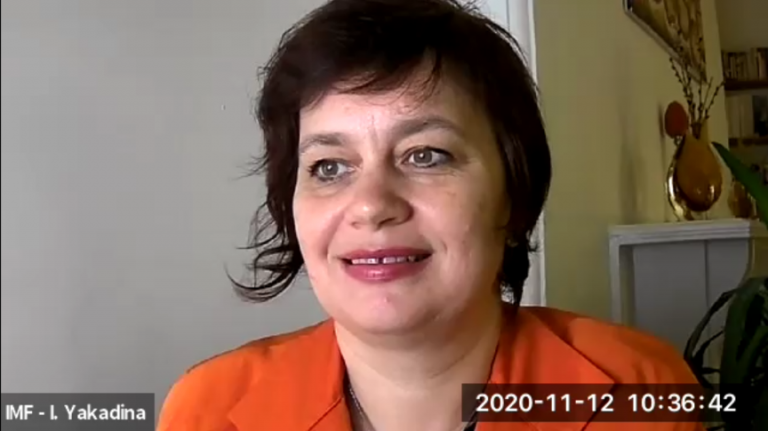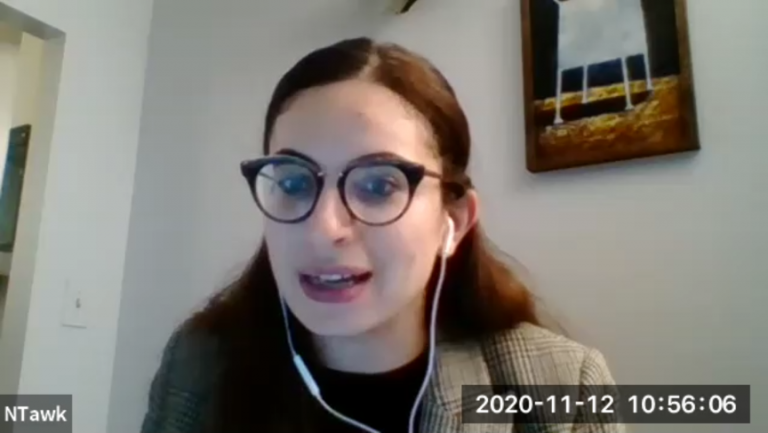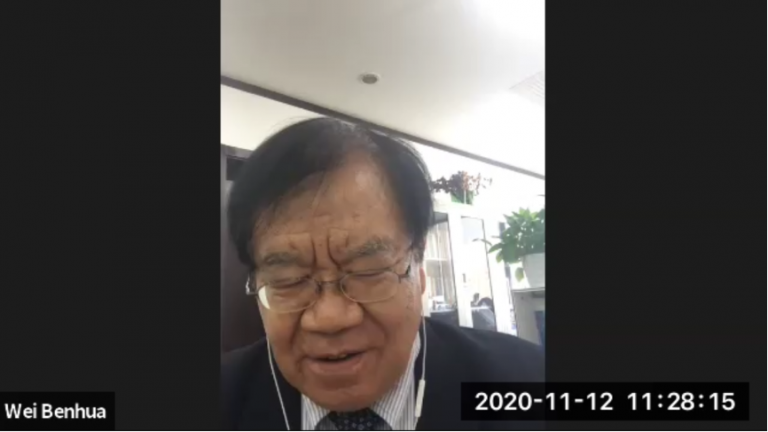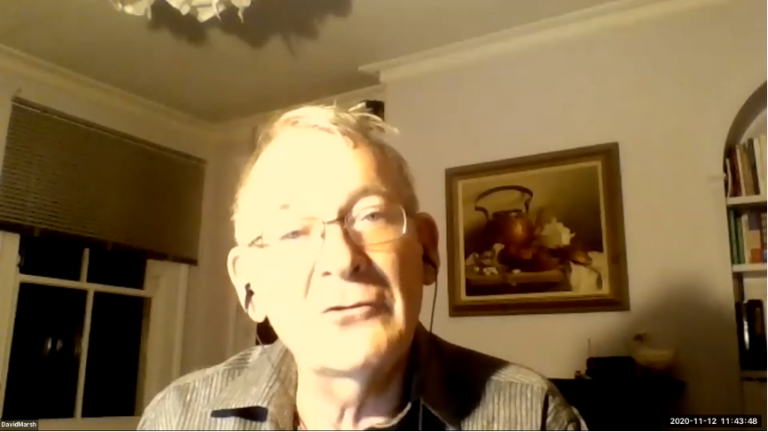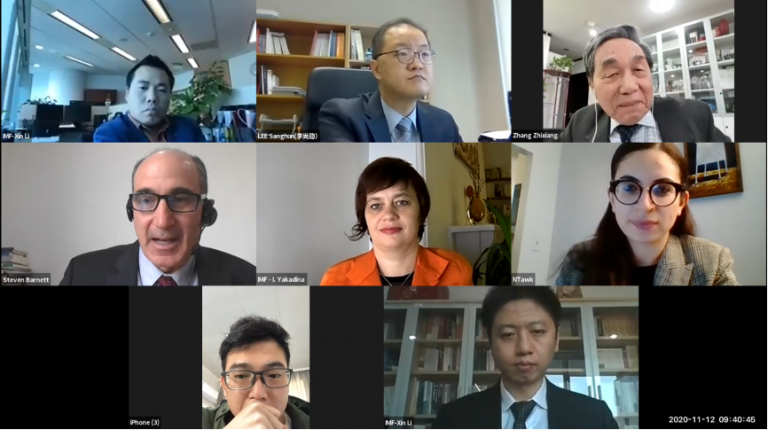Launch of IMF Asia and Pacific Regional Economic Outlook
2020-11-24 IMIOn the morning of November 12, the Launch of IMF Asia and Pacific Regional Economic Outlook, organized by the IMF Resident Representative Office in China and the International Monetary Institute (IMI) of Renmin University of China, was held via Zoom virtual meeting. Mr. Steven Barnett, Senior Resident Representative of IMF in China, Mr. Li Xin, Deputy Resident Representative of IMF in China, Ms. Irina Yakadina, Senior Economist from Regional Studies Division of IMF Asia Pacific Department, Ms. Nour Tawk, Economist from Regional Studies Division of IMF Asia Pacific Department, Mr. David Marsh, Chairman of the Official Monetary and Financial Institutions Forum (OMFIF), Mr. Wei Benhua, Former Administrator of the State Administration of Foreign Exchange (SAFE) and Former IMF Executive Director for China, and Prof. Zhao Xijun, Co-Dean of Academy of China Capital Market of Renmin University of China, presented at the meeting and delivered speeches. The meeting was chaired by Mr. Zhang Zhixiang, Former Director General of International Department of PBoC and Former IMF Executive Director for China.
In his welcome speech, Mr. Zhang Zhixiang said that the World Economic Outlook (WEO) published by the IMF every spring and fall is one of its important measures to monitor the global economy and that the World Economic Outlook released in Fall 2020 offers an overview of the world economy and its trends under the COVID-19 pandemic impact. Mr. Zhang expressed his heartfelt thanks to the IMF Resident Representative Office in China for its support and cooperation to IMI over the years.
Mr. Steven Barnett made the first presentation. He presented data and charts of world economic growth forecasts, pointing out that the world economy is facing the most severe recession since the Great Depression, but many economies are still showing a relatively positive development trend (among which China is the only major economy in the world with positive growth), thanks to policies adopted by these countries. Mr. Barnett suggested that in terms of policies, the focus should be on health care, and global efforts should be concerted to meet future challenges, including global debt, and improving an open and transparent investment and trade system.
Mr. Li Xin shared his analysis of the Asia-Pacific economy, pointing out that the Asia-Pacific economy has made progress and that there has been a multispeed recovery in the region. The IMF, according to Mr. Li, has a more positive outlook on the economic growth in the Asia-Pacific region and predicts that the real GDP of major Asian economies will achieve positive growth by 2021. However, risks coexist with opportunities. Mr. Li said that the forecasts, unlike those in pre-pandemic times, remain highly uncertain, with significant downside risks.
Prof. Zhao Xijun commented on the presentations by Mr. Steven Barnett and Mr. Li Xin. He strongly agreed with the analysis on the global and the Asia-Pacific economy, as well as the corresponding challenges and policy recommendations that should be adopted. At the same time, he also stressed that attention should be paid to the results of the economic stimulus measures and uneven development under the pandemic impact.
Ms. Irina Yakadina and Ms. Nour Tawk made presentations from the IMF headquarters in Washington D.C. Ms. Yakadina elaborated on the pandemic and its impact. She pointed out that the pandemic has exacerbated regional inequality, and the accelerating automation process is leading to more unemployment, which may endanger social stability. Given that different economies have adopted corresponding policies, Ms. Yakadina suggests improving progressive tax and transfer payment policies to ease debt pressure. Ms. Tawk presented data of COVID-19’s impact on economic activities, in terms of energy consumption, flight operations, nitrogen dioxide emissions and other indicators, to analyze the effectiveness of daily prevention and control measures. She further put forward four suggestions: quick action and active response; strengthening testing and tracking measures; correct selection of the timing of the exit; proactive macroeconomic policies as a buffer.
In his comments, Mr. Wei Benhua elaborated on economic recovery and the outlook for the future. He proposed that geopolitical tensions, especially those between China and the United States, should be taken into account when discussing policy measures, and that attention should be paid to vaccine availability in low-income countries. Mr. Wei said that there are still many uncertainties in global trade recovery and that the Regional Comprehensive Economic Partnership Agreement (RCEP) has entered the final stage, once signed, it will have a huge impact on the global economy.
Mr. David Marsh added that Sino-U.S. relations will turn for the better under the White House’s brand-new policy of multilateralism, and discussed in detail the decoupling of the U.S. dollar and the considerable trend of RMB internationalization.
In the final Q&A session, the IMF experts held further discussions on the IMF’s alternative policies to fight the pandenmic, suggestions on debt relief and international cooperation, the Green Swan event, China’s double development dynamic and the new development pattern.
